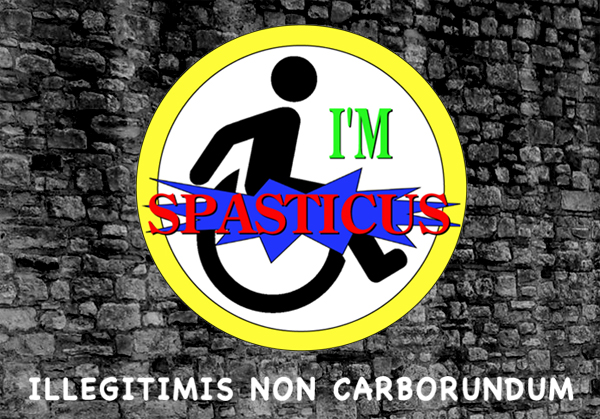
|
THE
UNOFFICIAL |
Nearly one in five Britons of working age, and more than a quarter of all Britons, are disabled.
Mayor of London Boris Johnson promised after the Beijing Olympics that London will be the most accessible and inclusive city ever to host the Games. You can click here to watch him reiterating that promise in 2011. (We are pleased to announce that, after Spasticus highlighted the lack of sub-titles and BSL interpretation, these have now been added.)
If you are one of the millions of people desperately trying to find out anything about accessible visitor facilities, visit the official www.InclusiveLondon.com for details of facilities which at least abide by European anti-discrimination laws.
If you want to find out how inclusive and accessible London really is, read on.
|
London has the least accessible taxi fleet in the UK. Despite this, London’s ‘Black’ taxis are consistently awarded the contracts for disabled passengers’ discount schemes, rather than opening these up to private hire firms who would operate vehicles that are much more widely accessible as well as considerably cheaper. The cost of this 'service' for disabled people has risen considerably over the past two years as subsidies have been withdrawn.
 |
The vast majority of London’s tube stations are not accessible to wheelchair users and other disabled people with mobility difficulties - only 65 out of 270 stations have step-free access from the street to the platforms. (The only fully accessible train line is the Docklands Light Railway.) Charities also criticise the so-called accessible routes: click here to find out more.
Current proposals
by London Underground to close weekday District line services to Kensington
Olympia will remove the only fully step-free interchanges between Underground
and Overground services in the area. The Transport for All organisation
says: "These proposals fly in the face of disabled people’s
right to equal access."
When he came into
power, Mayor of London Boris Johnson cancelled plans to make a number
of tube stations accessible, in order to offset the costs of cancelling
the road congestion charge scheme in Kensington and Chelsea. £20
million worth of preparation work was simply written off. Of
45 tube stations that former mayor Ken Livingstone promised would be step-free
by 2013, work on 22 is to be deferred, while another two will only see
partial improvements. In June 2012, Transport for London finally admitted
that there will be zero investment in step-free access over the next three
years.
Only 14,000 of London's 19,000 bus stops are accessible, meaning that even when buses are accessible, passengers often can't get on them.
New Routemaster buses, due to come into service in 2012 to replace the fully accessible 'bendy buses' as part of Boris Johnson's election promises, have been criticised for being inaccessible to powered wheelchair users. The Transport for All website states: "The wheelchair space whilst meeting official regulations that refer to the dimensions of a ‘reference wheelchair’ does not seem to be able to accommodate larger wheelchairs including electric ones. Manoeuvring skills of a paralympian basket ball player seem to be required to get yourself into the space." £8 million has been spent so far on developing five prototypes.
‘Heritage’ bus routes in London – those most popular with tourists – are allowed to operate buses that are inaccessible to wheelchair users and other people with mobility difficulties.
'Dial-a-Ride' travel provision for disabled Londoners who can't use public transport has been significantly reduced over the past two years, and costs have risen sharply. This has left many disabled people trapped at home.
Disabled people regularly complain of their treatment at London's airports. Xavier Gonzalez, chief executive of the International Paralympic Committee, said recently: “Just like the many passengers with a disability who fly on a daily basis, our athletes regularly experience unnecessary problems travelling through airports and with airlines. This should not be the case when we are striving for equality in society. This summer, 4,200 athletes will be travelling to London for the biggest ever Paralympic Games. The experience they have travelling on airlines and through airports could shape how they view the success of the games, regardless of their athletic performance.”
Disabled people leaving or entering the country should particularly beware of Ryanair, who have continually faced court proceedings for their treatment of disabled passengers and refusal to allow them onto flights. Unfortunately the company has sole rights to many routes between the UK and the rest of Europe and are based at London Stansted, the airport closest to the main Games venues.
BORIS TAKE NOTE: All of Barcelona's buses and metro trains are accessible, and the majority of its metro stations now have lift access. 100% of Vancouver's Translink system is accessible. WHY NOT Keep Olympia station open; reinstate plans to extend tube access; make the bus system truly inclusive; reinstate subsidies to alternative transport providers; and open up the Taxi Card system to real competition?
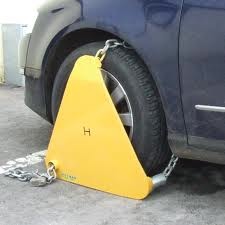 |
PARKING
The European Blue Badge parking scheme for disabled drivers is not recognised in central London, despite many national and publicly funded facilities being located here, and the few spaces which do exist are too small for minibuses. The reason given for this is traffic congestion levels, despite the inner-London congestion-charging scheme being pronounced a resounding success. The Royal Borough of Kensington and Chelsea continues to refuse to recognise the European parking scheme on the grounds of traffic congestion, despite successfully persuading Mayor of London Boris Johnson to remove the borough from the congestion charge scheme on the grounds that this was unnecessary.
The 'Direct Gov' Blue Badge Map online and mobile phone service, which helped disabled Londoners and visitors find out where they can park in London, was cancelled in June 2010.
Most of London's car parks have height restrictions which exclude the wheelchair-accessible vans and minibuses that disabled people rely on.
The main cultural venue for the Paralympics, the South Bank, which is also a major venue for the whole of the Cultural Olympiad, is not alone in having significantly fewer Blue Badge parking spaces available than it did a decade ago. Disabled people who have enjoyed meeting there for decades now have to stay at home.
The Mayor's HQ, City Hall, has no nearby Blue Badge parking at all, and the complex it is based in has no visitors' car park. Disabled people who are unable to use public transport cannot access the publicly funded exhibitions inside City Hall and the free performances that take place outside, and must compete for one of two spaces in the basement if invited to a conference or meeting. Despite this, City Hall is the venue for 'London House' during the Paralympics.
BORIS TAKE NOTE: Vancouver significantly increased its parking provision for disabled drivers in the run-up to the Winter Games, and recognises international disabled parking permits. WHY NOT Extend Blue Badge parking to central London; reinstate Blue Badge information services; and increase Blue Badge parking provision across London (including at City Hall)?
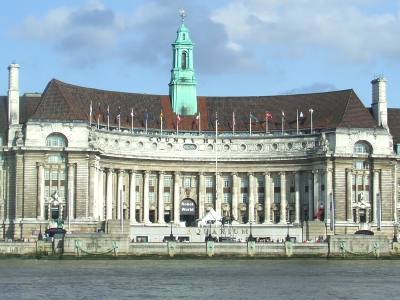 |
ON THE STREET
Central London has significantly poorer access to shopping and other facilities than outer London. The closer you get to the centre of power and wealth – and tourist attractions – the fewer the number of ramps, dropped kerbs and lifts.
The new 'Westfield East', which opened in September 2011 and which every Games-goer has to walk through to get to the Olympic Park, has also been criticised for failing to meet its promises on accessibility.
Before its closure, the Disability Rights Commission found that three-quarters of disabled people in the UK have difficulty accessing goods and services, primarily due to steps, heavy doors and a lack of parking and lifts. The majority of the British public believes that more could be done.
Central London businesses who want to comply with the law and make access improvements are often refused permission by Westminster and Camden Councils on the grounds of protecting our ‘heritage’. This is the case even with temporary structures, such as covers to prevent wheelchair lifts from being damaged by the rain. The Government is intending to introduce a 'presumption in favour of development' for companies wishing to build on 'green belt' land. Why not a 'presumption in favour of adaptation' for organisations who wish to comply with the law and people who want to make their homes accessible?
Dedicated viewing platforms that allow disabled people to watch events in Trafalgar Square have been removed over the past year. Visually impaired people and wheelchair users are now expected to watch events from the top of the steps into the Square. They are ‘protected’ from falling only by a knee-high plastic chain-link fence, and with the majority of their ‘view’ obscured by the giant clock that has been counting down to the Games. The Trafalgar Square lifts between the lower and upper levels are continually out of order.
The owner of County Hall – once the home of the Greater London Council and now a major tourist venue – refuses to allow a wheelchair ramp to be sited outside of the building. He has also removed the wheelchair lift, replaced the wheelchair users’ entrance with an office, and refuses to allow taxis carrying disabled visitors to drop off outside the door. Visitor attractions like the London Film Museum have to borrow a ramp from the hotel next door, and remove it again once disabled people are inside. Despite this, County Hall was used for the 2011 ‘Olympic Legacy’ conference.
London is spending less on Games-specific access improvements than any other recent Host City.
BORIS TAKE NOTE: Beijing attempted to transform the city's accessibility, including installing lift access to the Great Wall of China. Athens spent €18 million on access improvements before it hosted the Games. Barcelona was one of four finalists for the inaugural European Access City of the Year award in 2010, competed for by 66 cities across Europe. WHY NOT insist on legal compliance across London; and provide grants to help businesses achieve this?
Disabled people and our families have the lowest incomes of any group in the UK. The equality gap has grown significantly over the past 30 years.
In the last decade, disabled Britons of working age saw their income fall from nearly 90% of the median national income to just 80%.
On average, non-disabled men in the UK have an income that is twice that of disabled men with social care and access needs.
In the period 2005-8, 10% of disabled men with social care and access needs had a gross income including state benefits of less than £59 a week. 10% of disabled women in this situation had a gross income of less than £31 a week.
Disabled men who are recognised by the Equality Act but who don't consider themselves to have significant access needs still have incomes that are 33% lower than non-disabled men's. Disabled women in this position have incomes that are 25% lower than non-disabled women's.
National Insurance-funded disability payments, which used to be paid for an unlimited period, are now limited to 12 months only. This has left many disabled people without any income at all.
Disability Living Allowance, a state-funded payment towards the additional costs of disability, is being replaced with Personal Independence Payments in 2013. £2 billion - 20% - will be cut from the budget in the process, leaving disabled people bearing an even higher proportion of the additional costs of living with disability than they do now.
Overall, despite being elected on a promise 'to protect the most vulnerable', the Government plans to cut £9 billion from spending on disabled people in the life of the current Parliament. The cuts are largely blamed on the impact of the banking crisis, yet UK bankers took home £14 billion in bonuses in the last financial year.
BORIS TAKE NOTE: The income gap between London's rich and poor is greater than in Athens, Barcelona, Seoul, Vancouver, Sydney, Albertville, Lillehammer and Nagano. In the developed world, only the American host cities and Turin have a worse record. WHY NOT support disabled people to reverse benefit cuts, instead of ignoring the interests of more than one in four Londoners?
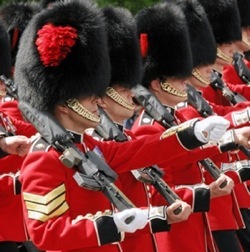 |
JOB OPPORTUNITIES
Disabled workers represent one in five of the workforce, but around half are unemployed.
80% of workers have a job when they become disabled, but only 60% are in work a year later, and only 36% are in work the year after that.
Unemployed disabled workers are four times less likely than non-disabled people to find work. When disabled people do get jobs, one in three are out of work again by the following year, compared with only a fifth of non-disabled people.
Only 20% of disabled men claiming Disability Living Allowance and reporting work-limiting access needs have a job, and they earn 20% less than non-disabled men. Disabled women in this situation earn 12% less than non-disabled women and than women who are only "officially" disabled.
The chances of any low-qualified British disabled man having a job halved between the 1970s and the 2000s, from 77 per cent to 38 per cent.
More than nine in ten employers state that they would not employ a worker with a history of mental illness, even if they have since made a full recovery. Unsurprisingly, 90% of workers with a history of mental illness are unemployed.
Disabled people who are recognised under the Equality Act but who have no work-limiting access needs are almost as likely to be employed as non-disabled people, and receive similar wages. This means that disabled people with work-limiting access needs are even worse off than the official statistics suggest.
Experiments by charities have shown that non-disabled people with identical CVs to disabled people are more than twice as likely to be granted an interviewer with an employer.
The vast majority of disability related jobs are held by non-disabled people. Disabled people are left to volunteer in these roles, often on committees and other consultation groups intended to explain disability issues to the non-disabled professionals.
More than 132,000 public sector jobs were lost last year. For obvious reasons, disabled people are over-represented in the public sector. Disabled people are also commonly pressured by employers to resign or make themselves voluntarily redundant.
Despite all of the above, the Government is determined to 'encourage' as many disabled people as possible into employment by cutting benefits further.
BORIS TAKE NOTE: President Obama marked the 20th Anniversary of the Americans with Disabilities Act (ADA) in July 2010 by signing Executive Order 13548, which calls on federal departments and agencies to increase the recruitment, hiring and retention of people with disabilities in coming years. The Office of Disability Employment Policy (ODEP) [there is no UK equivalent] has been assigned to assist the U.S. Office of Personnel Management (OPM) in implementing the directive. In Lillehammer, state employers are required to interview at least one qualified disabled job applicant if they apply, and positive discrimination by state employers is legal. WHY NOT institute a programme to increase the number of disabled City Hall employees and ensure their support needs are met; and fund an organisation to tackle discrimination by employers?
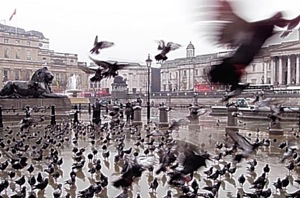 |
AIR QUALITY
London has the most polluted air in Europe and this is worsening. In 2011, the annual limit for particle exposure had been exceeded by April – two months earlier than in 2010. This limit is already twice the amount recommended as being safe to breathe by the World Health Organisation.
London faces European Union fines of £300 million for failing to meet the 2011 deadline for reducing the city's air pollution to legal limits.
More than 4,000 Londoners, most of them disabled, die each year as a direct result of air pollution, losing on average more than 11 years from their lifespan.
London's air pollution causes asthma, bronchitis and other breathing problems for thousands of other Londoners, and is particularly harmful to disabled people.
Despite this, Mayor Boris Johnson has scrapped or delayed some of the planned anti-pollution measures since coming into office.
BORIS TAKE NOTE: In the last six years, Seoul has replaced 86% of its buses, fitted 162,000 diesel vehicles with emission-lowering devices and reduced congestion by preventing cars entering the city on days chosen by their owners. Air quality continues to improve. WHY NOT reinstate plans to improve air quality, as well as taking further action?
 |
RIGHTS
Disabled people are the only group of people in the UK who can legally be discriminated against, with the 'Equality Act' detailing the ways in which this can be done.
There is no official body responsible for tackling discrimination against disabled people within employment, goods and service provision, housing and education. Rather, it is down to the individuals who are discriminated against to take personal action to enforce the law.
The Government is in the process of closing the Equality and Human Rights’ Commission’s helpline, which provided information about the rights that disabled people do have and supported them to take individual action.
The Government is also cutting the Legal Aid funding that provided disabled people with legal advice and support to enforce their rights.
The Government is introducing charges for disabled people to take discrimination cases to Tribunals. This is despite the fact that most claimants will have lost their jobs, and/or be too ill to work, and will need every penny of any costs awarded. Discrimination cases are also much longer and more complex than other Tribunal cases, so it is very hard to win without a solicitor, while legal fees are extremely high.
In the opinon of the group of disabled people who are officially monitoring it, the UK regularly breaches the UN Convention on the Rights of Disabled People.
The Government recently included the Equality Act within its 'Red Tape Challenge', a public consultation aimed at "freeing up business and society from the burden of excessive regulation" by abolishing or weakening existing legislation.
BORIS TAKE NOTE: President Obama recently extended the Americans with Disabilities Act (ADA) to plug perceived gaps. WHY NOT fund an advice and legal service to ensure that the rights of disabled Londoners are protected?
 |
The Host Borough of Newham led the world in introducing inclusive education. However, official Government policy is now ‘to reverse the bias towards inclusive education’.
The UK is one of the few countries to have opted out of the clause within the UN Convention on the Rights of Disabled People that promises to provide disabled children with inclusive education.
Segregated or 'special' schools have been widely criticised for providing social care and childminding services rather than education.
More than half of all disabled 16-year-olds are classified as 'NEETs' – Not in Education, Employment or Training. By the time they reach their early 20s, disabled young people are still twice as likely to be NEETs as their non-disabled peers.
More than half of disabled adults have no qualifications.
Disabled adults with high access needs – particularly those who also have social care needs – are signficantly less likely to be highly qualified than disabled adults who are recognised by the Equality Act but whose impairments have no impact on the types of work they can do. They are also far more likely to have been denied access to mainstream education.
Subsidies for part-time adult education classes, particularly popular with disabled and older people and our carers, have been largely withdrawn over the past few years, forcing many to close.
The recent tripling of university fees will hit disabled students and their families, and the children of disabled parents, particularly badly. London is already the most expensive place to study in the UK.
BORIS TAKE NOTE: 72% of disabled adults in the United States have been educated to at least High School graduate level. WHY NOT work with disabled people to ensure that best practice standards of inclusive education are introduced across London; and subsidise further education courses for disabled people and our families?
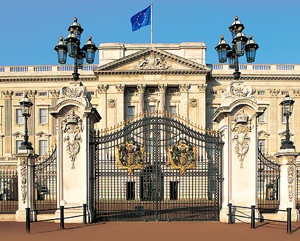 |
HOUSING
London has an acute shortage of accessible housing. Many disabled young people spend years in residential care as a result, unable to work or study and often in facilities aimed at the over-70s.
Only 10% of new London homes are required by law to be built to a standard that a wheelchair user could live in. Many Londoners therefore become homeless when they become disabled.
Charities estimate that 11,000 young disabled people could become homeless as a result of planned cuts to Housing Benefit [rent subsidies] from 2013. Most young disabled people will no longer be allowed to rent a home of their own, but will be forced to find shared accommodation.
In total, 450,000 disabled people will lose an average of £13 a week as a result of Housing Benefit cuts, forcing many older disabled people into homelessness as well.
Many thousands of disabled people are expected to be forced to leave London altogether as a result of these cuts.
Thousands of Londoners have also lost their homes as a result of the Games, as landlords have evicted them and raised rents in the expectation of visitors wanting short-term lets.
BORIS TAKE NOTE: London's rents are already higher than in Moscow, Sydney, Vancouver, Beijing and Athens. Only Tokyo is a more expensive host city to rent in. WHY NOT increase the percentage of accessible housing being built across London; and fund new housing developments aimed at disabled young people?
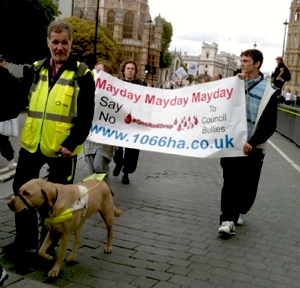 |
SOCIAL CARE
In contrast to a decade ago, the majority of disabled people now receive no support from their local authorities and are left to manage alone or with only the support of their families.
The Royal Borough of Kensington and Chelsea (the richest borough in the UK) recently won the legal right to leave a disabled woman lying in her bed alone wearing incontinence pads for 12 hours each day, rather than supplying her with the help that she needs to use the toilet during the night. The Borough's decision was upheld by the UK's Supreme Court, despite their previous ruling that prisoners in Scotland had been robbed of their human rights by being required to use the toilet in front of other prisoners and then 'slop out' the next morning.
Culturally specific services have been withdrawn, leaving agencies to provide care 'regardless' of race, religion or sexual orientation.
In 2011, Host Boroughs Tower Hamlets and Newham suffered the highest cuts to their central Government grants in the UK. This has inevitably affected the services that they can provide to disabled people, as well as increasing the cost of these to disabled people.
The Government has closed the Independent Living Fund to new applicants, and has only committed to supporting existing recipients until 2015. Many disabled people will lose their independence as a result.
BORIS TAKE NOTE: Disabled people in Sweden have access to extensive support services to enable them to live independently, and are entitled to claim funds to pay family members if they prefer them to provide support. Disabled people in Germany have the right to claim the costs of professional support to cover their unpaid carers' sickness, holidays and respite needs. WHY NOT demand a minimum standard of appropriate support for disabled Londoners no matter which borough we live in; and support disabled people's campaign against the cuts?
 |
CRIME
In September 2011, the Equality and Human Rights Commission concluded that disabled people in the UK face harassment, insult and attack almost as a matter of routine, while a "collective denial" among police, government and other public bodies means little is done to challenge the situation.
It is a crime to publish material likely to incite hatred on the grounds of race, but it is not a crime to publish material likely to incite hatred on the grounds of disability.
The number of disability hate crimes reported to UK police between 2006 and 2009 rose by 300%, to 1,402. Yet only 393 people were prosecuted under disability hate crime legislation, compared to 11,624 people for racial and religiously aggravated crimes. Officially, 95% of hate crime goes unreported.
People with learning difficulties frequently experience abuse and violence from their care-givers within residential and institutional settings. Despite this, the Government has made widespread cuts to inspections, increasing disabled people's vulnerability to crime.
According to the charity Scope, 20% of repeat victims of 'anti-social behaviour' are disabled people. Scope states that Deaf and disabled people in the UK are regularly mocked, taunted, robbed, assaulted and harassed. Our homes are attacked; our cars damaged and the places where we live, work and socialise are also targeted. In some cases, anti-social behaviour escalates into more sinister and serious crimes ending in kidnap, rape, torture and murder.
Scope's research also shows that more than a third of disabled adults have experienced increased harassment and abuse over the past 12 months. An alliance of 50 charities blame this on the Government's stigmatisation of disabled people as lazy and dishonest.
BORIS TAKE NOTE: London already has the highest reported crime rate relative to its population of ANY host city in the world. WHY NOT fund an organisation to tackle disability hate crime; demand strengthening of hate crime legislation; oppose cuts to neighbourhood policing; and defend disabled Londoners' integrity against Government slurs?
 |
DIVERSITY
Disabled people are over-represented within the LGBT (Lesbian, Gay, Bisexual and Trans) communities, because of the impact of homophobia on mental and physical health as well as HIV – as many as one in three LGBT people may be disabled.
The cross-charity DisLIB (Disability Listen, Include, Build) project – closed in 2011 due to lack of funding – concluded that LGBT and BME (Black and Minority Ethnic) disabled people's organisations are the most under-funded and under-resourced of any disabled people's organisations.
Disabled people complain that access to the annual London ‘Pride’ march and rally has become increasingly poorer over the past decade, since the event has been rebranded as a ‘visitor attraction’ (no facilities are provided for disabled visitors). Only a tiny percentage of people participating in World Pride 2012 were disabled, with Regard, the national LGBT disabled people's organisation, deciding it was too dangerous to attempt to access it.
The Arts Council recently removed funding from the only accessible London venue with a regular LGBT programme, the Drill Hall - the venue has now closed altogether.
The London Lesbian and Gay Film Festival at the South Bank has only minimal access for people with mobility and sensory access needs.
City Hall has not funded conferences for BME and LGBT disabled Londoners and for disabled women since the mid-1990s. Diversity topics have not featured in the Disability Capital conferences, nor have disabled women featured in the City Hall-funded women's conferences.
Trans people complain that Games organisers LOCOG consistently refer to 'six' equality strands, rather than the seven (including Trans alongside gender, race, religion, age, sexual orientation and disability) recognised in UK equality legislation.
The national equality organisation Stonewall reports that the only mention of sexual orientation within Games organisers LOCOG’s activities relates to volunteering. Stonewall states that community safety and other inclusion issues have been ignored despite their raising these with the organisers.
BORIS TAKE NOTE: WHY NOT withdraw City Hall funding from LGBT events such as Pride that fail to be truly inclusive; and ensure that LGBT issues are included within events aimed at disabled people?
 |
SPORT
Fewer than one in five disabled Londoners participates regularly in a sporting activity.
Disabled people commonly report that sports and leisure centres are too expensive for them to use, and that they cannot afford to buy sporting clothing and equipment.
The majority of clubs and sports facilities for disabled people are controlled by non-disabled people, who also like to control the participants.
Britain’s most internationally famous sporting event, the Wimbledon Lawn Tennis Tournament, refuses to offer parking concessions to disabled people despite the nearby stations being inaccessible to people with mobility difficulties. Blue Badge holders are forced to pay an additional £25 in parking charges in order to watch the tennis – including the wheelchair tennis – even if they qualify for free public transport where this is accessible to them.
Football is the only sport to have worked extensively with disabled spectators to improve access.
Games organisers LOCOG have been severely criticised for limiting free companion tickets for ambulant disabled people to 10 per venue per event, including for the 85,000-seater main stadium. They have also been criticised for failing to seat wheelchair users next to the rest of their party, splitting families and on occasion leaving children to sit on their own.
LOCOG also failed to notice that, while over-60s were supposed to be able to buy discounted tickets for some Paralympic events, the ticketing website only offered one full-price option for all wheelchair users. In many cases the difference in price was 400% (e.g. £5 for other senior citizens but £20 for all wheelchair users).
Games' sponsors have thousands of free tickets to give away. However, none have been allocated to the hundreds of disabled people who have given up their time over the past few years in an effort to make the Games as inclusive and accessible as organisers LOCOG will allow.
Games organisers LOCOG have been severely criticised by disabled people for appointing Atos Origin as an official sponsor. Atos Healthcare, a division of Atos Origin, carries out the controversial 'fitness for work' tests on behalf of the Government. Many of their decisions have been overturned on appeal, costing the taxpayer millions of pounds in extra administration costs. In the meantime, thousands of disabled people have had to survive without the benefits they are entitled to. TV presenter and former commentator Steve Cram has also been criticised for a lack of solidarity with Paralympic athletes for becoming Atos's 2012 "ambassador".
BORIS TAKE NOTE: New US legislation requires sports facilities to ensure that disabled spectators have equal access to seats and facilities. WHY NOT take the lead on insisting that London's sports facilities and sporting events are truly inclusive for both spectators and participants?
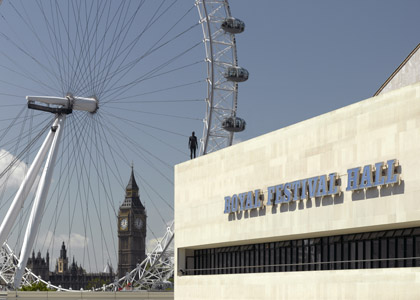 |
ARTS
Within the arts organisations that the Arts Council funds on a regular basis, only 3% of permanent staff, 1% of contractual staff and 4% of Board members are disabled.
Only 50% of disabled people attend at least one arts event a year, compared to 70% of the population as a whole.
£83 million is being spent on the Cultural Olympiad, but only £3 million of this is going to the ‘Unlimited’ fund for disabled artists. The majority of Unlimited funding is actually going to non-disabled people too, since disabled artists were encouraged to bid jointly with non-disabled people as well as working with non-disabled support workers and technicians.
For the Games themselves, the Unlimited commissions are being shown at the Southbank Centre, although it has continually been criticised for being inaccessible to disabled people. Ticket prices have been set at £10-plus, although this is beyond the reach of the vast majority of us. The Arts Council provided the Southbank Centre, which already receives a huge amount of public subsidy, with additional funds for the Unlimited season. However, they refused to fund the free festival being organised in Newham for the Paralympics, even though Newham has the lowest level of arts engagement in the country and is the main host borough.
Neither the arts commissions for the Olympic Park, nor the Cultural Olympiad poster commissions, nor the creative roles in the opening and closing ceremonies, were advertised to allow disabled people to compete for them.
Only 100 out of the 3000 volunteer performers at the Paralympic ceremonies will be disabled. To apply, performers had to have "huge amounts of energy", as directors opted for intensive, last-minute rehearsals.
Widespread cuts were made to the Disability Arts sector nationally in order to pay for the Games. This included the closure of London’s Disability Arts Forum, responsible for the London International Disability Film Festival, Art Disability Culture magazine and a month-long London Disability Arts Festival – all of which would normally have been expected to form the core of the Paralympic Cultural Olympiad. The National Disability Arts Forum and the National Disability Arts Collection and Archive were also closed.
The Arts Council’s policy is now to ‘mainstream’ disabled people. This involves handing over public money to organisations with no disabled staff and no experience of working with disabled people, in the belief that this is superior to disabled-led work. Although the Arts Council is now responsible for ensuring that Article 30 of the UN Convention on the Rights of Disabled People is implemented, which gives us the right to equal access to the arts as well as to be resourced to organise and participate in our own cultural activities, this policy remains unchanged.
BBC Ouch, the interactive home of disabled people on the web, was closed in July 2011. Disabled people are now running their own unofficial message boards at http://forum4.aimoo.com/OuchToo
For the first time, there was not a single speech, presentation or session on disability art and culture at the Mayor's Disability Capital conference at Excel in October 2011. Similarly, at the Arts Council England's annual State of the Arts conference in February, there was no mention of disability, and no BSL interpretation, audio-description or Palantype.
BORIS TAKE NOTE: Sydney hosted a two-week Paralympic Arts Festival with venues throughout the city. The Australian Government recently announced $500,000 of additional funding for Arts Access Australia. WHY NOT insist that public funding is withdrawn from arts organisations which fail to be truly inclusive; and reinstate the Disability Arts sector with some of the savings made?
 |
In October 2011, a report commissioned by Inclusion London found a marked deterioration in media portrayals of disabled people between 2004/5 and 2010/11. In a study of five major newspapers, the Sun, the Mirror, The Daily Express, The Mail and the Guardian, mentions of disabled people increased by a third. However, there was a marked reduction in articles portraying disabled people as deserving of support, in genuine need of services or describing their daily experience. Instead, disabled people are increasingly being portrayed as benefit cheats and burdens on society.
When the 2012 logo was launched, it was heavily criticised for not taking into account accessibility. The broadcast version actually breached rules aimed at ensuring that broadcast images do not cause epileptic fits. Click here to read further criticisms.
Games organisers LOCOG told one of their contractors there was no need to make official films inclusive, since access could be ‘added on’ afterwards. This followed complaints about the inaccessibility of films being screened at the launch of LOCOG's 2011 Diversity Week. Disabled Londoners question whether LOCOG's films are commonly screened without 'add-ons'.
Olympic architects Populous and Deputy Mayor Richard Barnes were caught red-faced at the Mayor's Disability Capital conference at Excel in October 2011. Barnes had to promise to withdraw a film about the accessible and inclusive nature of the Olympic Park both during and after the Games when it turned out not to have sub-titles or BSL interpretation, nor to include any images of disabled people.
Paralympic Games coverage is being handled by Channel 4 sport, best known for their horse racing programmes. Promising 'to target new audiences for disability sport', they launched their Games coverage with a TV marketing campaign called 'Freaks of Nature'. Subsequent programmes have largely been screened within their weekend 'yoof TV' slots.
Apart from the BBC, 'freak show' programming is endemic in British programming. Other Channel 4 series include 'Beauty and the Beast', 'Seven Dwarfs' and 'The Undateables'.
Making fun of disabled people within television and radio comedy has also become increasingly common over the past few years, including on the BBC. In terms of Paralympic broadcaster Channel 4, in 2010 they refused to apologise when 'comedian' Frankie Boyle made a 'joke' that model Katie Price's son, as a black disabled boy, posed a sexual threat to her. In the ensuing row, it turned out that Channel 4 Chief Executive David Abraham had personally approved the broadcast. This seems to have given other 'comedians' the green light. In October 2011, Ricky Gervais was unrepentant in his repeated use of the word 'mong' on Twitter despite protests from people with learning difficulties. Gervais later called the singer Susan Boyle, who has learning difficulties, "a f-ing mong" on Channel 4 with their blessing.
BORIS TAKE NOTE: It may be too late to demand that Games organisers LOCOG put equality and inclusion at the heart of their communications strategy, but it's not too late for you to change your own strategy, including putting BSL and sub-titles on your own official videos and campaigning for improvements in media coverage of disabled people.
WELCOME TO OUR WORLD! COME BACK SOON!
Got something to report? Email us at info@inclusive-london.com
Got a website? Help us to keep our position in Google and other search engines by linking to us.

Are you Spasticus? Look out for our badges around London!
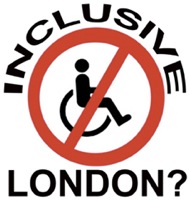
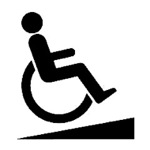

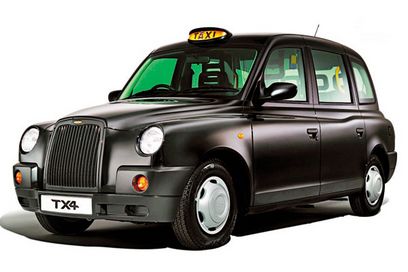 TRANSPORT
TRANSPORT
 STANDARD
OF LIVING
STANDARD
OF LIVING